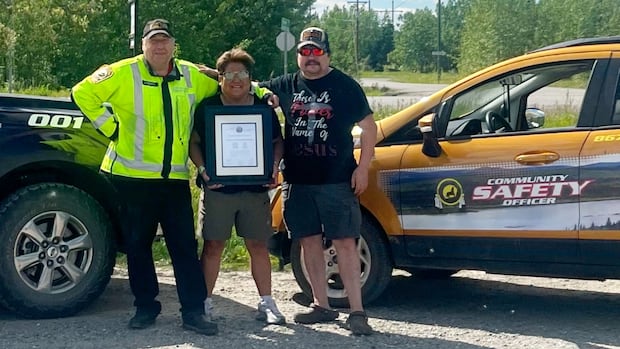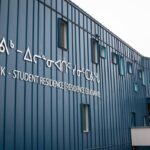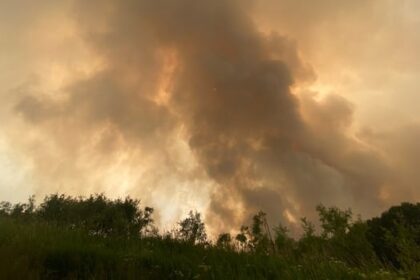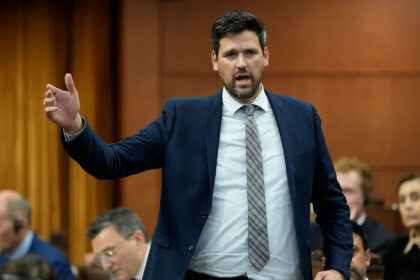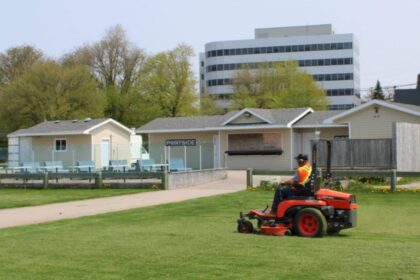NorthYukon First Nation-owned consultancy firm House of Wolf & Associates has teamed up with Yukon University to offer a community safety guardian training program, intended to help create safer Yukon communities.Program is ‘part of larger shift toward Indigenous-led community safety solutions,’ consultant saysChris MacIntyre · CBC News · Posted: Aug 26, 2025 9:23 PM EDT | Last Updated: August 27Yukon First Nation-owned consultancy firm House of Wolf & Associates has teamed up with Yukon University to offer a community safety guardian training program, intended to help create safer Yukon communities. (Paul Tukker/CBC)Yukon University is now offering a course aimed at teaching Yukon First Nation citizens the skills required to become a safety guardian within their own communities.The course is a collaboration between the university and the First Nation-owned, Yukon-based consultancy firm House of Wolf & Associates.For years, House of Wolf & Associates has been working with Yukon First Nations to develop community safety guardian training programs tailored to the needs of each community. The first program launched in 2017 with the Kwanlin Dün First Nation in Whitehorse and since then programs have also been created with the Selkirk First Nation in Pelly Crossing, the Carcross-Tagish First Nation in Carcross, the Teslin Tlingit Council in Teslin, and soon with the First Nation of Na-Cho Nyäk Dun in Mayo.”We’re really excited about the partnership with Yukon University,” said the company’s CEO, Gina Nagano.She said having the program now being offered through the university is confirmation that First Nation-led safety initiatives not only work, but are essential when it comes to addressing issues within First Nation communities.”We don’t want to go in a colonial approach,” Nagano said. “The community safety training program is part of larger shift toward Indigenous-led community safety solutions that prioritize healing, trust and culture revitalization, because they’re trained differently.”They’re trained to de-escalate the conflict, provide trauma informed support, and connect people to care in order to prevent harm before it happens.”Selkirk First Nation’s lead safety officer Darcy Marcotte, left, House of Wolf & Associates CEO Gina Nagano, centre, and community safety officer David Bennett. (Gina Nagano)Nagano said course participants must be nominated by their First Nation to be considered for a spot in the class. Once accepted, students will attend the course one week out of each month, for the next six months. The first cohort will attend at the Whitehorse and Mayo campuses.For future cohorts, the idea is to rotate hosting the course among different Yukon communities. The goal is to reduce the training burden on individual Nations, and strengthen a territory-wide network of safety guardians. Over the six-month course, students will learn about trauma-informed care, conflict de-escalation, mental health response, first aid and overdose response, cultural safety, and other skills necessary for the role of community safety guardian.Elders and Indigenous experts are embedded throughout the training, offering cultural teachings and mentorship. Nagano said completing the course does not mean an individual becomes a police officer or equivalent but it does provide the skills necessary to respond to situations in a compassionate and helpful way when called upon.”Some of the good work that guardians, or safety officers can do in the community is to connect and build relationships,” Nagano said. “Trust is huge and that’s the foundation of what these safety officers can provide.”Patrick Rouble, the department head of continuing education with Yukon University, said there are only 20 seats available for the first round of the course and it’s almost fully booked already.”It’s really exciting,” Rouble said. “Because of the nature of how the need has been recognized for the community, how the community and Nations involved have come up with the solution, the intended curriculum, the presentation style, the delivery style.”He calls it “a Yukon program to address Yukon needs.”The program begins Sept. 22. ABOUT THE AUTHORChris MacIntyre is a CBC reporter in Dawson City, Yukon. If you have a story idea or news tip you’d like to share you can reach him at chris.macintyre@cbc.ca or @chriswhereyouat on X.
Thursday, 5 Feb 2026
Canada – The Illusion
Search
Have an existing account?
Sign In
© 2022 Foxiz News Network. Ruby Design Company. All Rights Reserved.
You May also Like
- More News:
- history
- Standing Bear Network
- John Gonzalez
- ᐊᔭᐦᑊ ayahp — It happened
- Creation
- Beneath the Water
- Olympic gold medal
- Jim Thorpe
- type O blood
- the bringer of life
- Raven
- Wás’agi
- NoiseCat
- 'Sugarcane'
- The rivers still sing
- ᑲᓂᐸᐏᐟ ᒪᐢᑿ
- ᐅᑳᐤ okâw — We remember
- ᐊᓂᓈᐯᐃᐧᐣ aninâpêwin — Truth
- This is what it means to be human.
- Nokoma


